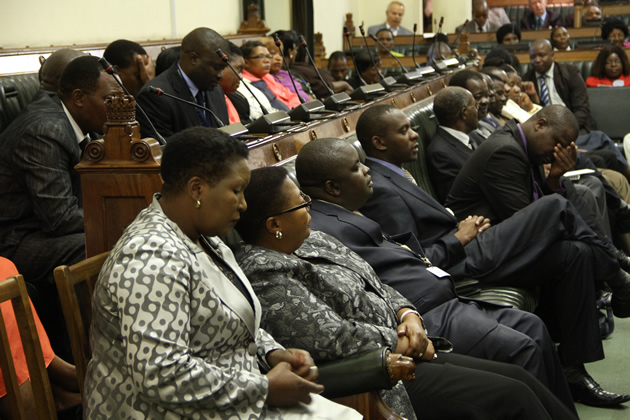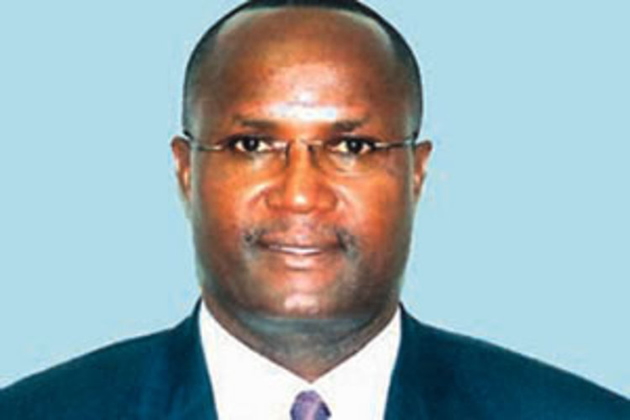Just what is enough for Members of Parliament?

Lloyd Gumbo Mr Speaker Sir
They are all Members of Parliament, but there are the haves and the have-nots among these honourable members. And distinguishing rich MPs from poor ones is as easy as shooting fish in a barrel; that is, even if one were to argue that poverty is relative.
There are MPs who cannot afford to consistently foot their smoking and drinking bills and are seen making an effort to befriend the haves regardless of age differences.
This reminds one of the late Marshall Munhumumwe’s song “Anemari ndiye mukuru”.
One may identify a not-so-endowed MP you notice milling around Parliament’s corridors when fuel coupons are not yet available, hopelessness written all over their faces.
It is believed that the haves used their financial muscle to sway votes by initiating several projects and donations in their constituencies from primary elections to the harmonised polls, while the have-nots won because of party ideology.
In most cases, the electorate voted for Zanu-PF or MDC-T because of their ideologies, not necessarily because of the quality of a candidate or their material worth.
As such, we have MPs coming from different backgrounds whose fortunes are miles apart representing us in Parliament.
They have different objectives and understanding of what Parliament means.
There are those who were looking for jobs and some who wanted to satisfy the ego that goes with being an MP.
There is also an interesting group that claims they went there to serve us.
MPs always complain that they are paid pittances, but the question is, are MPs employed by Government or they are there to fulfil a calling?
If they are employed, then how much should they be paid considering their mandate and responsibilities? If they are fulfilling a calling, then what is the fuss about their token of appreciation being too little?
Every time MPs talk about the need for their salaries to be increased, there is a public outcry.
It is a world phenomenon, be it in the First World or Third World countries.
MPs always get flak, especially at a time when we are struggling with poverty, unemployment and deteriorating health and education facilities. We rarely argue from an informed point of view with regards to how much they are paid already. About 300 of our backbenchers get a monthly salary of about US$800, meaning former Premier Services Medical Aid Society chief executive officer Cuthbert Dube could afford to pay all of them and still remain with more than 50 percent of his total income, including benefits.
This did not go down well with MPs as evidenced by the frothing when it became apparent that some among us mortals were living in “paradhiso” while they were being asked to tighten their belts.
MPs always compare their benefits and salaries with what their counterparts in the region are paid. It is understood that MPs in Zambia are paid about US$3 000 per month while those in Kenya get monthly salaries of US$10 000. It would definitely cost us a leg and an arm if we were to match those figures. Ideally, our MPs’ primary mandate is making laws and representing us in governance. But to the electorate, when we elect parliamentary representatives we, curiously, want someone who can pay school fees for our children, support us with groceries and coffins when our relatives die and in some cases, we expect them to buy us clothes including undergarments above other developmental projects like constructing dams and rehabilitating roads.
It is against this background that MPs feel their salaries are too little to carry the burden. Those who support MPs’ cause argue that for us to get quality representation, we should make sure our leaders are handsomely paid to avoid compromising them.
It is a fact that our MPs are among the poorly paid in the region. But we need to crystallize this debate by looking at the role of MPs and what we think would be a fair pay for them. First, we must accept that MPs are not philanthropists. They are not there to buy us clothes, pay school frees for our children or repair roads. Legislators are there to make laws that serve our interests and take our concerns to central government so that they can be addressed. But I put the blame squarely on the MPs for this illusion because when they are campaigning, they promise the electorate heaven on earth once elected.
They promise to erect bridges and when they are told there are no rivers, they promise to “dig rivers” so that they can put up those bridges. It is for that reason that most MPs have not gone beyond their first term because the electorate judges them against what they have done in terms of infrastructural development or fulfilment of their promises. Some of the former MPs claim to have hit a hard patch in their lives because Parliament owes them allowances.
There are those whose only source of income is Parliament. But surely, if one cannot afford to fend for their families outside Parliament, what are they doing in that august House?
Do you really expect an MP who is failing to raise school fees for his children to play their oversight role on the executive or the rich without being compromised?
It becomes easy for the rich to bribe the poor MPs than well to do ones because obviously they may not afford the rates.
Second, MPs are part-timers who in this case should be entitled to just allowances per sitting if not just a token of appreciation. Those who are looking for a full-time job or a paying one for that matter must not set their foot in Parliament. MPs are like board members who are entitled to sitting allowances only.
Some legislators claim they are not being treated at par with ministers when it comes to benefits and salaries. They simply do not appreciate the fact that ministers are full-time Government employees who run ministries for the duration of their appointment while Parliament sits for about one week a month sometimes. As such, it is important that we have MPs who have other sources of income because knowing the financially constraints facing our country, they may never live to reap so much from Treasury. Third, let’s look at the numbers.
We have such a bloated Parliament in comparison to our colleagues in the region.
In all fairness, we do not need and have never needed so many MPs.
About 150 will be sufficient for the job at hand.
Remember, Zambia only has 158 MPs for about the same population as us but with a bigger land area of more than 75 percent.
- Feedback: [email protected]









Comments